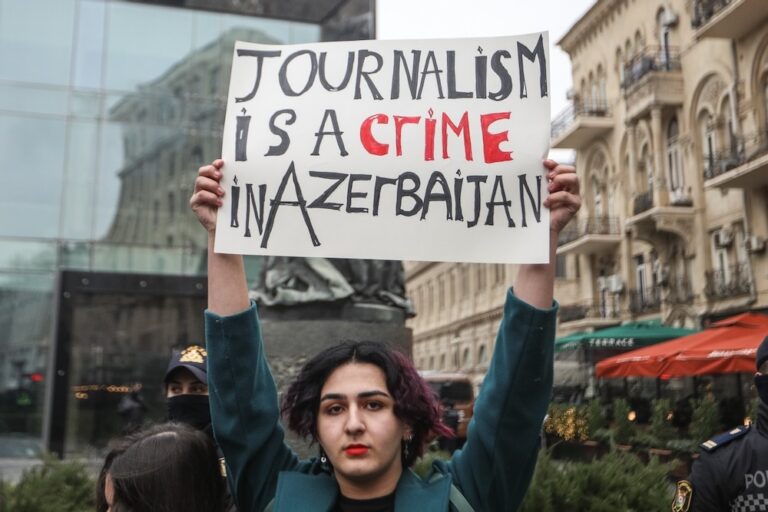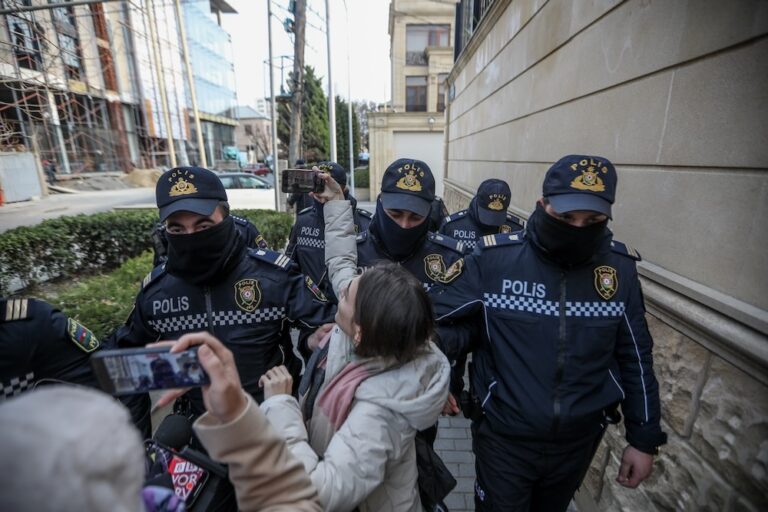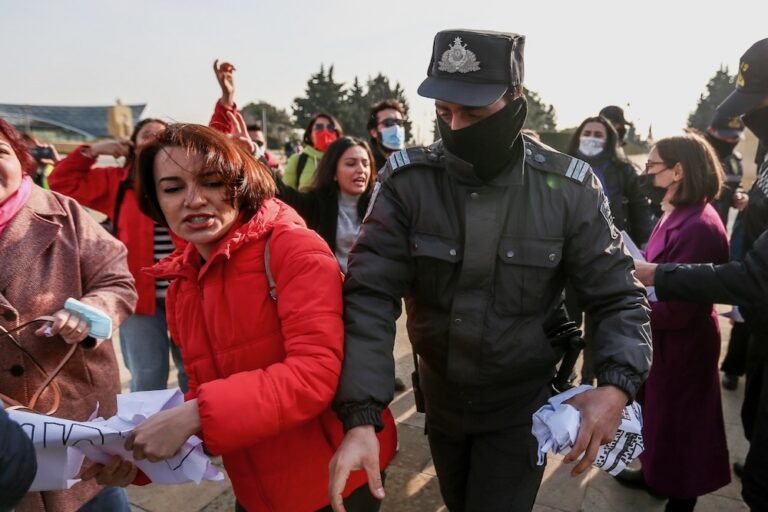Amendments to Azerbaijan's NGO legislation introduce new offences punishable by fines, which have now increased to 2500-3000 AZN approximately (2600- 3100 EUR) for NGOs and between 1000-2000 AZN (approximately 1000- 2100 EUR) for directors of national and foreign NGOs.
As fears grow about further steps to repress civil society in Azerbaijan, the Council of Europe should publicly condemn the new legislation and make clear that such policy is a setback for human rights, said the Institute for Reporters’ Freedom and Safety (IRFS) on 6 February 2014.
The Venice Commission has acknowledged that Azerbaijan’s 2009 and 2011 NGO legislations “unfortunately overturn the previous efforts to meet with the requirements of international standards”, but – as yet another draconian passage is signed into law – the Council of Europe’s institutions should go further and be more forceful in their condemnation.
Instead of heeding the Venice Commission’s opinion regarding Azerbaijan’s NGO legislation, Azerbaijan’s rubber-stamp parliament, dominated by ruling party MPs, introduced the new legislation, placing additional restrictions on independent NGOs and damaging the country’s image on the eve of its chairmanship of the Council of Europe Committee of Ministers.
On 3 February, Azerbaijan’s president signed the amendments into law.
The new legislation provides authorities with additional triggers for the temporary suspension and permanent banning of national and foreign NGOs in Azerbaijan. The amendments introduce new offences punishable by fines, which have now increased to 2500-3000 AZN approximately (2600- 3100 EUR) for NGOs and between 1000-2000 AZN (approximately 1000- 2100 EUR) for directors of national and foreign NGOs. The amendments also introduce additional administrative requirements and increased checks.
IRFS reminds that one day before the adoption of the amendments by parliament, police in Baku arrested Anar Mammadli, chairman of the Election Monitoring and Democracy Studies Centre (EMDSC), a leading independent election monitoring group in Azerbaijan that has been observing elections in the country for more than 12 years. The same day, a court sent Mammadli to pretrial custody for three months while he is being investigated on charges of tax evasion, illegal entrepreneurship, and abuse of office.
“The Council of Europe should show Azerbaijan’s civil society that it is firmly on their side and will not turn [a] blind eye to the introduction of new laws that suppress the fundamental freedoms necessary for the functioning of a healthy civil society”, said Emin Huseynov, IRFS CEO and Chairman.
The latest amendments are a blatant violation of article 58 of the Azerbaijani Constitution (freedom of association), article 11 of the European Convention for the Protection of Human Right and Fundamental Freedoms (freedom of assembly and association), article 22 of the International Covenant on Civil and Political Rights (freedom of association), and article 20 of the Universal Declaration of Human Rights (freedom of assembly and association).
By virtue of Article 151 of the Constitution, international agreements binding Azerbaijan prevail over domestic legislation, with the exception of the Constitution itself and acts accepted by way of referendum. Thus, in the case of a conflict between the provisions of the ICCPR or the ECHR and the provisions of any of the laws regulating NGOs, the former shall prevail.
The IRFS strongly denounces the use of laws as a mechanism of pressure on NGOs and calls on the Azerbaijani government to repeal the recent reactionary amendments to guarantee freedom of association which is one of the fundamental rights and enable conditions conducive to the development of civil society.
Azerbaijan will take over the rotating chairmanship of the Europe’s top human rights watchdog, the Council of Europe in May 2014. Bodies like the Council of Europe must help safeguard people’s fundamental rights before it’s too late. To this end, IRFS calls on the Council of Europe to condemn the violation of the provisions of the European Convention, and namely Article 10 (freedom of expression) and Article 11 (freedom of association and assembly) and demand that Azerbaijan complies with its commitments and obligations as a member state of the Council of Europe. It is the Council of Europe’s credibility which is on the line.



